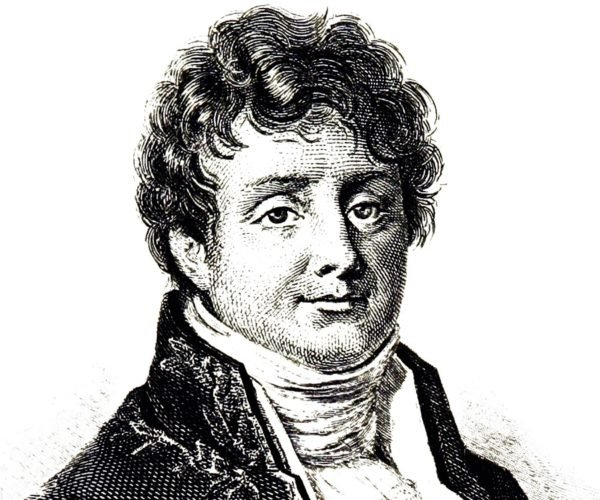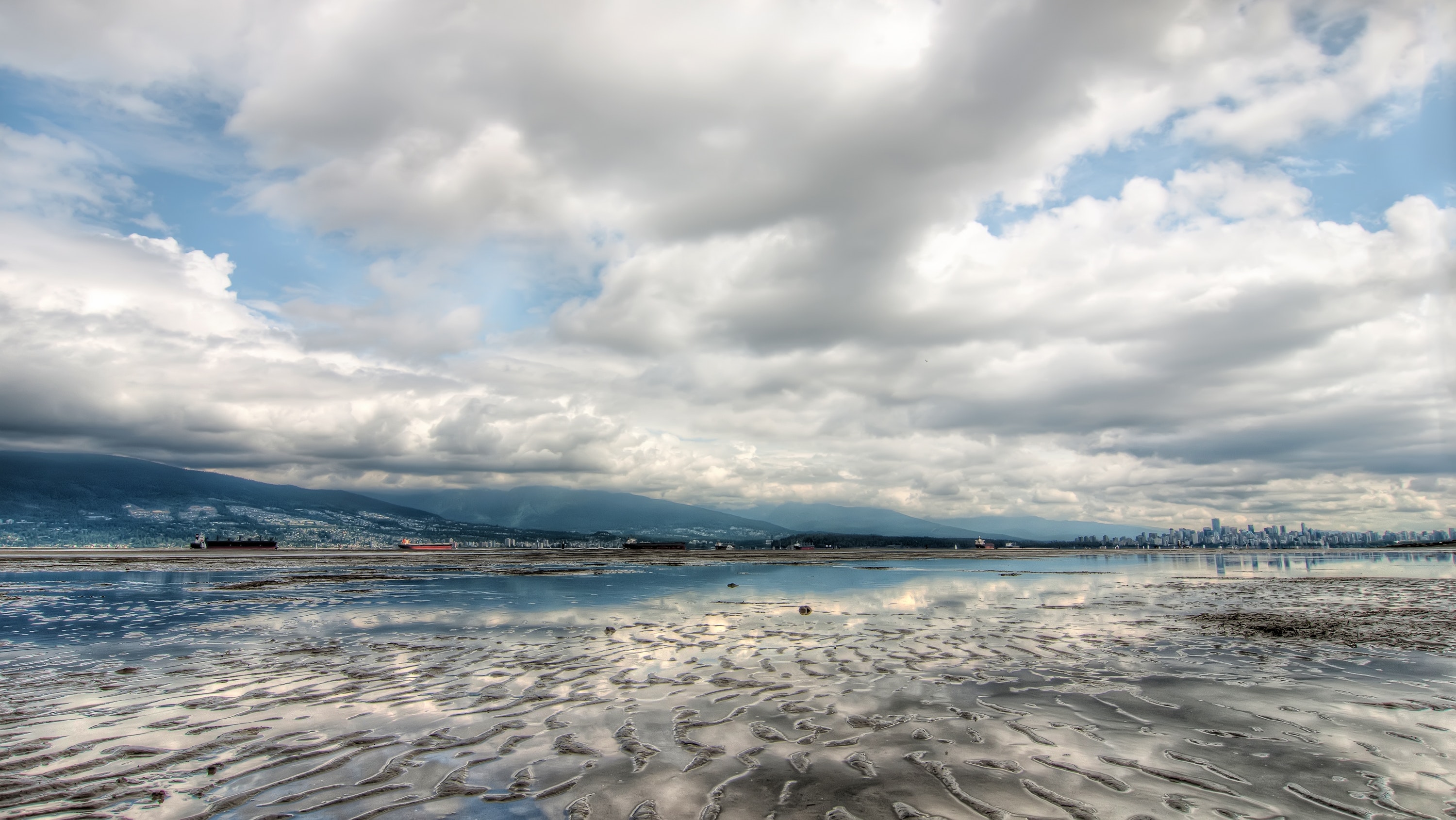#05: Climate change... what's the hype all of a sudden?

If you are a very critical reader, you may have already stumbled over the first words in the first post of this blog. If you don't want to go back there, just let me remind you - they were: "For some years now everyone seems to be talking about climate change." This sounds a bit like climate change and its whole shebang has either happened just recently (it has not) or that we have only known about this problem for a couple of years (we don't). As a matter of fact, the problems commenced when humans started burning fossil fuels on a large scale, i.e. during the industrialisation era (beginning in the early nineteenth century). To be fair, close to nobody had any idea about possible problems that may arise from this burning. But even at that point in time, there were already scientists trying to understand the underlying consequences. So by all means: Just because the media are filled to the brim with information (and misinformation) on climate change right now, this does neither mean that climate change is new, that it is "a trend", or something that only came to our attention just recently. The reasons for it being in the media will be discussed in a future blog post, while this blog post right here wants to show you how old our understanding of climate change actually is.
Nearly two centuries ago, mathematician and physicist Joseph Fourier (known for the law of heat conduction and the Fourier series in mathematics) found that we are increasing the CO2 concentration in the atmosphere by burning fossil fuels. He even proclaimed that this will have a heat-trapping effect - an effect that we now know as the "greenhouse effect". Physicist and Chemist Svante Arrhenius used physical chemistry to understand the greenhouse effect and make estimates on its heat trapping characteristics. This happened in 1896, quite some time after aforementioned Fourier had already died. So let me assure you, the basic science and understanding of the greenhouse effect, which is causing climate change, is absolutely nothing novel.

So we have known about the greenhouse effect for very long and we know that carbon dioxide is trapping heat in our atmosphere (see the upcoming blog post for details on the mechanics). Back then, when the effect became known, probably no one assumed humans to burn so much fossil fuels in the years to come, to actually cause problems for our world's climate. And even if people would have suspected problems on the horizon, they probably would have taken it as collateral damage. Simply because energy was needed for progress, fossil fuels were abundant, and the process to utilise them was fairly easy. So who cares for some tiny CO2 particles in the air, be they few or many? How harmful can they be?
It took many more decades of scientific research to understand the magnitude of the consequences. In the 1970s, climate science still was a marginal science. Of course, there were already many people working in the field, but their findings were rarely communicated or known to the broader public. It was not really en vogue and it didn't sell newspapers. Moreover, climate science was still a bit unclear about where our climate might be heading as we were still trying to understand all the different factors and control knobs playing a role in climate regulation. There were some eye-catching headlines about some few scientists predicting a looming ice age because of the cooling effect of aerosols in the atmosphere. This notion was far from being a consensus view of climate scientists at the time but only the view of some vocal individuals (see a summary about this myth of an imminent ice age published by the American Meteorological Society). Anyway, today's climate science deniers enjoy bringing up the reminder that "climate scientists" predicted an ice age in the seventies, which apparently was wrong, so why should one believe today's climate science predictions of global warming? To stick with the facts, the majority of climate scientists in the 1970s published numerous studies investigating and assuming a warming of average global temperatures due to greenhouse gases. This graphic (numbers taken from Peterson et al. 2008) gives a better impression of the stance of climate science during that time:

In the following decades, climate science found more and more evidence on global warming. Today, only a negligible number of people would contest the existence of global warming. The stance of the US National Academy of Science is "There is now strong evidence that significant global warming is occurring... It is likely that most of the warming in recent decades can be attributed to human activities... The scientific understanding of climate change is now sufficiently clear to justify nations taking prompt action." This is taken from a joint statement by 17 National Science Academies taken in 2001, about 20 years ago. The academies are the Australian Academy of Sciences, Royal Flemish Academy of Belgium for Sciences and the Arts, Brazilian Academy of Sciences, Royal Society of Canada, Caribbean Academy of Sciences, Chinese Academy of Sciences, French Academy of Sciences, German Academy of Natural Scientists Leopoldina, Indian National Science Academy, Indonesian Academy of Sciences, Royal Irish Academy, Accademia Nazionale dei Lincei (Italy), Academy of Sciences Malaysia, Academy Council of the Royal Society of New Zealand, Royal Swedish Academy of Sciences, Turkish Academy of Sciences, and the Royal Society (UK).
These National Science Academies are far from the only respectable science institutions taking a stance about climate change and its cause. They are joined by the
- National Oceanic and Atmospheric Administration,
- Environmental Protection Agency,
- NASA's Goddard Institute of Space Studies,
- American Geophysical Union,
- American Institute of Physics,
- National Center for Atmospheric Research,
- American Meteorological Society, and
- the IPCC Fifth Assessment Report, which draws upon the work of over 850 peer reviewed studies.
Just btw, none of the aforementioned institutions predicted an ice age in the 1970s. And this reminds of an anecdotal piece of a similar situation: A friend recently told me, he cannot believe the hype around climate change. The situation is basically the same as in the 1980s, when so many people in Germany were talking about what is known as forest dieback (or "Waldsterben") - a phenomenon describing the damage and dying of large parts of Germany's forest areas. The topic was intensely discussed, made many big headlines, was of an extremely polarising nature, and lead to the rise of the Green Party in Germany. Political countermeasures were undertaken and it is hard to say how the situation would have evolved without these measures. Fact is, the forests did not vanish completely, as few alarmists of the time may have assumed. Another fact is that many people are still thinking about this phenomenon as an example for "science alarmists in the wrong". My friend explained to me "They kept going on about our forests dying, and kept demanding political countermeasures to be taken. And where are we now? The forests are intact, and nobody can really tell what was causing the dying in the first place. Why should we believe today's scientists that are predicting new disaster scenarios?"

There is so much wrong with the logical conclusions taken from this. For one, measures for keeping the air clean and for improved forestry had been undertaken and the situation got better. That is nothing that should be remembered as a failure. Although we cannot say for sure if the measures taken were the cause of the improving forest situation (correlation is not causation), but at least it is not the other way round. Next, the few alarming voices predicting a complete forest dieback were not a scientific consensus, but only one possible scenario brought to the table by a vocal minority (of course a minority that was very attractive for big news headlines, making this scenario stick in the heads of people until today). And furthermore, even if scientists would have been completely wrong about the case of forest dieback in the 1980s, why would one automatically assume that they have to be wrong about today's climate change? I can only point you to (i) the age and extend of our knowledge about global warming (in comparison to the new and badly understood forest dieback), (ii) the consensus of all major global scientific institutions on climate change (in comparison to the scientific uncertainty about the origins of forest dieback), and (iii) even if the whole scientific community would have been wrong about the forest dieback in the 1980s (which they weren't), is this really a reason to stop listening to scientists? Just let me remind you that science is not only jabbering about climate change... Science is the basis of pretty much all accomplishments of modern civilisation. The computer you're using, the plane you are flying on, the medication you take when you're sick... it's all thanks to science. Science is not fool-proof and science is not always in the right (hello, iron content of spinach). But the scientific process ensures the accumulation of verified knowledge by repeated checks and reviews of novel science by independent scientists all over the world. New findings undergo years of intense scrutiny before they can be viewed as established science. And even then... if new findings come to light that annul previous science: This can happen, too. Science is never a dogma or something that is written in stone. New findings that have undergone and survived the scientific process can always update previous knowledge.
Each of these three points made against my friends argumentation can stand for itself. But if we take them all together, which we should, there is a synergy effect that underlines the vigorousness of the points. Not believing in science because science may have been wrong about something previously, not only shows that the scientific process has not been understood, but is also a dangerous and ignorant path to walk on. But this is just a side note. The main topic of this post was to give you an understanding of how long we have known about the science and effects of climate change. Turns out it has been centuries. Don't forget that when people start questioning the science, the current hype, or start confronting you with comparisons to other moments in time where science may have gotten it wrong. Allegedly.
For everyone who wants to dig deeper into the history of climate science there is a very readable and more extensive summary available: The History of Climate Science.
Image references, respectively: Li-An Lim, Uncredited picture of Jo Fourier, Petersen et al., Sebastian Unrau




